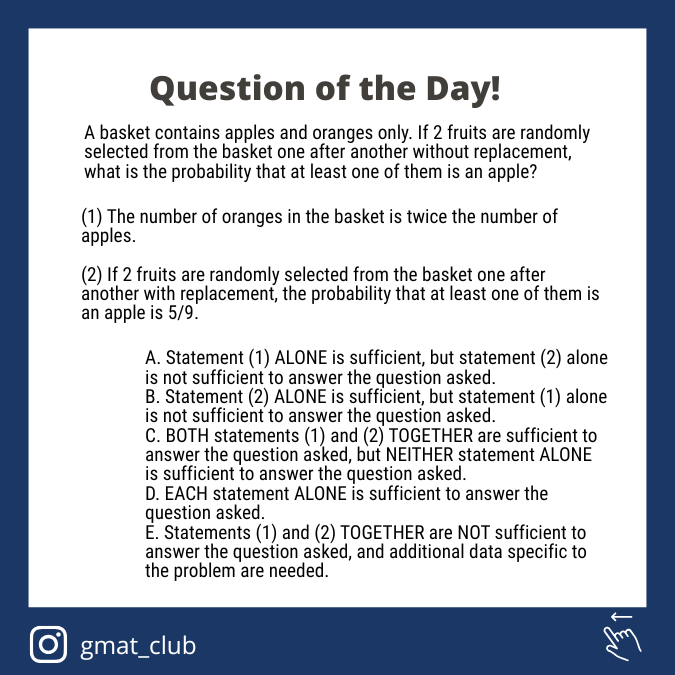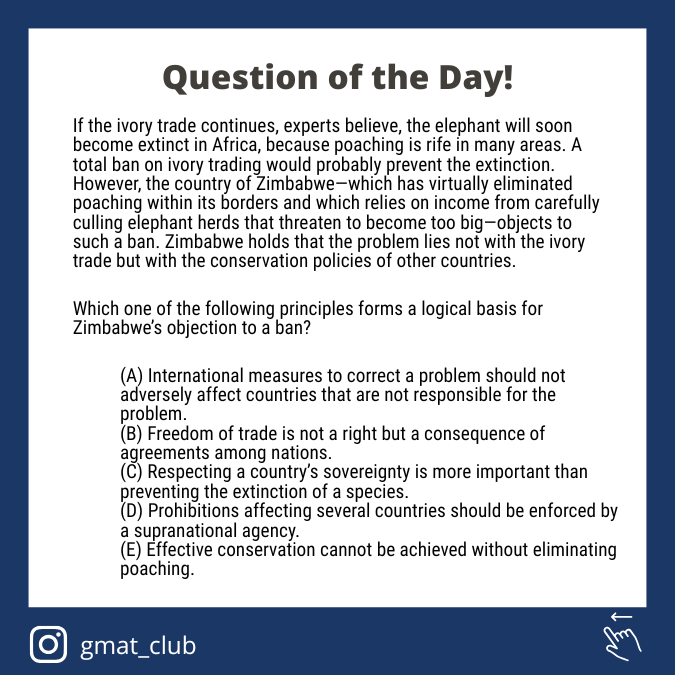Events & Promotions
|
|

GMAT Club Daily Prep
Thank you for using the timer - this advanced tool can estimate your performance and suggest more practice questions. We have subscribed you to Daily Prep Questions via email.
Customized
for You
Track
Your Progress
Practice
Pays
Not interested in getting valuable practice questions and articles delivered to your email? No problem, unsubscribe here.
- Nov 20
07:30 AM PST
-08:30 AM PST
Learn what truly sets the UC Riverside MBA apart and how it helps in your professional growth - Nov 22
11:00 AM IST
-01:00 PM IST
Do RC/MSR passages scare you? e-GMAT is conducting a masterclass to help you learn – Learn effective reading strategies Tackle difficult RC & MSR with confidence Excel in timed test environment - Nov 23
11:00 AM IST
-01:00 PM IST
Attend this free GMAT Algebra Webinar and learn how to master the most challenging Inequalities and Absolute Value problems with ease. - Nov 25
10:00 AM EST
-11:00 AM EST
Prefer video-based learning? The Target Test Prep OnDemand course is a one-of-a-kind video masterclass featuring 400 hours of lecture-style teaching by Scott Woodbury-Stewart, founder of Target Test Prep and one of the most accomplished GMAT instructors.
Kudos
Bookmarks
| Data Sufficiency Butler: November 2025 | ||
| November 5 | DS 1 | DS 2 |
_______________________________________
DS 1
In a game, each blue chip carries a specific point value, as does each red chip. What is the total point value of 5 red chips and 3 blue chips in the game?
(1) The point value of 15 red chips and 9 blue chips is 732.
(2) The point value of a red chip is 12 less than the point value of a blue chip.
_______________________________________
DS 2
Elaina and Fernanda each separately received an annual bonus. What is the total amount of their bonuses?
(1) Elaina's bonus was 50 percent greater than Fernanda's.
(2) The sum of bonuses of Elaina and Fernanda was between $2,100 and $2,800.
Kudos
Bookmarks
| Problem Solving Butler: November 2025 | ||
| November 5 | PS 1 | PS 2 |
___________________________________
PS 1
In a barrel full of apples, 45% of the apples weigh more than 81 grams, and 81% of the apples weigh less than 145 grams. What percent of the apples in the barrel weigh more than 81 grams but less than 145 grams?
(A) 16
(B) 18
(C) 26
(D) 32
(E) 36
___________________________________
PS 2
An internet-based company that came into business on January 1, 2015 acquired 250 customers in the first month. If the company had 20% month-on-month growth for the next 2 months and 10% month-on-month growth after that, how many customers did the company have on May 1, 2015?
A. 360
B. 396
C. 435
D. 436
E. 479





















